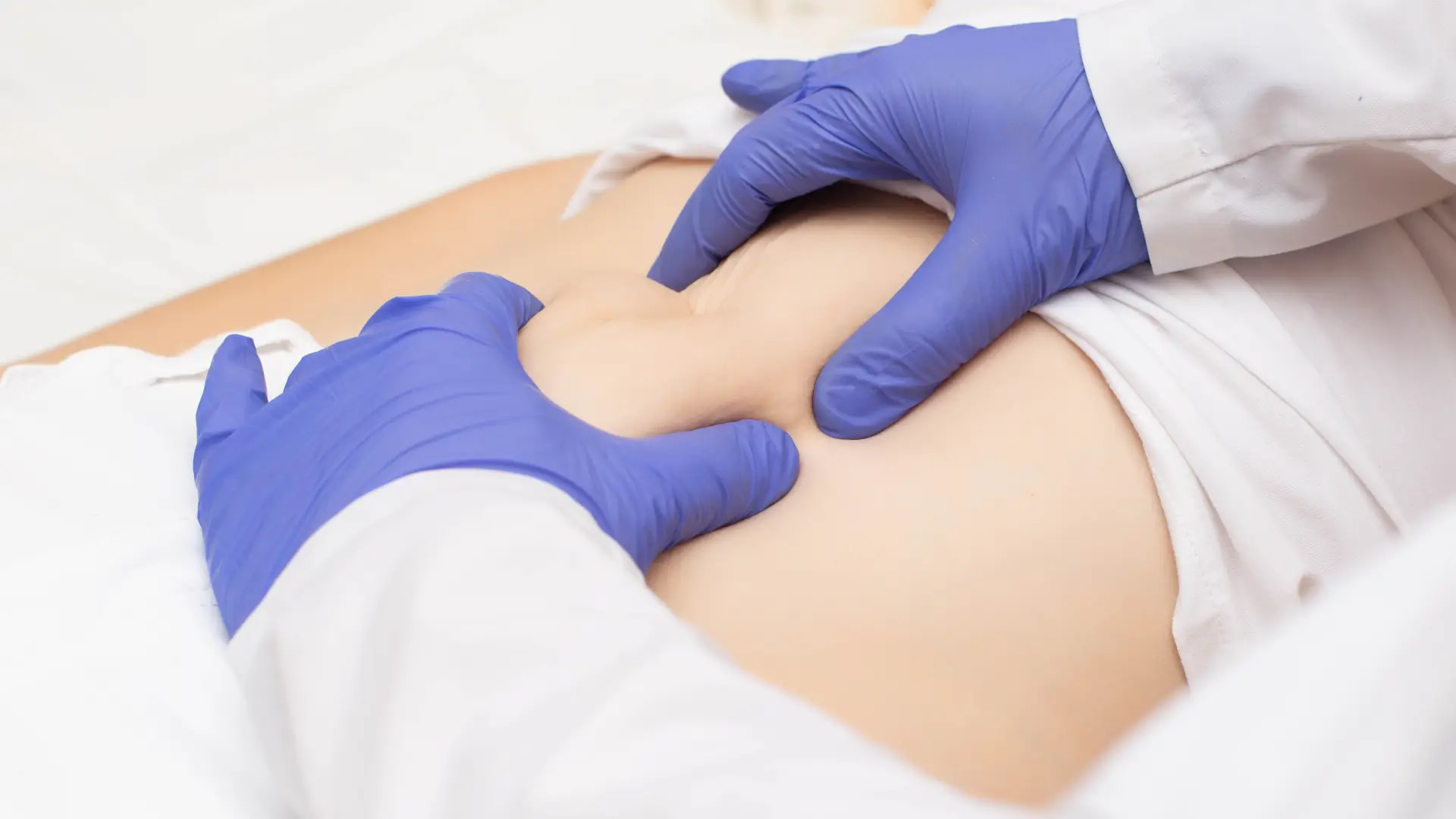This webinar will equip you with the knowledge and confidence to assess incidental liver and pancreatic lesions, determining which require specialist referral.
Adam Bartlett and Michael Chu cover:
The different types of lesions commonly encountered in primary care. Key factors in assessing these findings, including patient history, risk factors, and clinical presentation. Guidance on when to refer to a specialist for further evaluation. Additionally, the session addresses the likelihood of malignancy, considering variables such as age and family history. You will also gain practical insights into which initial investigations can be conducted in primary care before specialist consultation, optimizing patient care and referral pathways.
Reducing or avoiding alcohol before and after surgery is often recommended to support optimal recovery. Surgery places a significant strain on the body, both physically and mentally. Read on to explore best practices for safe and responsible alcohol consumption.
Why alcohol before surgery is not recommended
Being in optimal physical condition before surgery helps with both the procedure itself and the recovery period afterwards. A healthy diet, good hydration, and rest are essential, and alcohol consumption can negatively impact all these factors.
Drinking alcohol before surgery can increase the risk of:
- Excessive bleeding – Alcohol thins the blood, reducing its ability to clot properly, which may lead to complications during and after surgery.
- Anaesthesia complications – Alcohol can interfere with anaesthesia, potentially making it less effective.
- Weakened immune system – A strong immune system is crucial for fighting infections and ensuring a smooth recovery.
Additionally, alcohol can cause dehydration, which affects circulation and delays healing. Because of these risks, it’s recommended to avoid alcohol for at least 48 hours before surgery, though your surgeon may advise a longer period depending on your procedure and overall health.

Is it safe to drink alcohol after surgery?
It’s best to avoid alcohol for at least 48 hours post-surgery because it can:
- Interfere with pain medications and other prescribed drugs.
- Increase the risk of excessive bleeding.
- Slow down the healing process.
For more complex procedures, such as liver resection or Whipple surgery, the risks of alcohol consumption are even higher. These surgeries place greater strain on the body, requiring extended recovery periods and careful post-operative management. In such cases, it’s essential to consult your surgeon or GP before reintroducing alcohol to avoid complications.
Whether you’ve had open or laparoscopic surgery, following a tailored recovery plan can ensure the best possible outcome.
Managing alcohol consumption after liver resection surgery
Alcohol avoidance is especially important after liver resection surgery, as the liver plays an essential role in processing toxins, metabolising medications, and supporting overall body function. Since part of the liver is removed during the procedure, the remaining portion must work harder to compensate while it regenerates and heals. Drinking alcohol too soon can place unnecessary stress on the liver, hinder recovery, and increase the risk of complications.
For most patients, alcohol should be strictly avoided for at least three months post-surgery. However, recovery times can vary depending on the extent of the resection, overall liver health, and any underlying conditions. Your surgeon or liver specialist may recommend a longer period of abstinence or even permanent alcohol reduction based on your individual case.
Coping strategies for patients with alcohol dependency
For individuals who regularly consume alcohol, adjusting to a low- or no-alcohol lifestyle can be particularly challenging—both physically and emotionally. If you or a loved one are struggling with alcohol reduction, seeking professional support can make a significant difference in long-term recovery.
- Consulting your doctor or liver specialist to create a personalised alcohol reduction plan before surgery.
- Joining support groups or community-based recovery programmes.
- Seeking professional counselling to address any emotional or psychological dependencies on alcohol.
- Encouraging open discussions with family and loved ones to create a supportive, alcohol-free recovery environment.
Recommended timeline for avoiding alcohol
Since everyone’s body responds differently, these are general guidelines for alcohol avoidance before and after surgery. Always consult your surgeon for advice based on your specific procedure and health condition.
Pre-Operation:
✔ Avoid alcohol for at least 48 hours before surgery.
✔ For liver resection surgery, your surgeon may recommend reducing alcohol intake well in advance.
Post-Operation:
✔ At a minimum, avoid alcohol for 48 hours after both laparoscopic and open surgeries.
✔ Avoid alcohol for one to two months for a smoother recovery.
✔ Never consume alcohol while taking prescribed medications (especially painkillers).
✔ After liver surgery, alcohol should only be reintroduced three months post-operation with medical approval.
✔ In the long term, moderating alcohol intake can support better overall health.
Easy to understand surgeries with Dr Michael Chu
Patient care is the top priority for Dr Michael Chu, and that means ensuring you and your loved ones feel fully informed, supported, and prepared at every stage of your surgical journey. If you have concerns about alcohol consumption, an open conversation is all it takes to find a solution. For comprehensive, patient-focused care from an experienced HPB surgeon, contact Dr Michael Chu today.
Food plays a crucial role in your recovery after surgery, yet it's often overlooked. A balanced diet, combined with ample rest, helps you regain strength and heal more effectively. With guidance from your HPB surgeon and some meal planning, you can set yourself up for a smooth recovery.
Check out our post-surgery recipes to discover foods that can help you heal after surgery.
Easy meal and snack ideas after surgery
Whether you’re preparing meals for yourself or looking for recipes to make for a loved one, here are some easy solutions for staying full, satisfied, and well-fed.

Red lentil soup
This recipe is an excellent vegetarian option that helps you squeeze in your fibre requirements alongside a generous serving of vegetables. If you’re using dry lentils, soak them overnight.
What You’ll Need:
- 1 cup of diced onion
- 1 cup of red lentils (dry or canned)
- 1tbsp of ginger, garlic (minced, diced, or paste)
- 1-2 cups of diced veggies (potatoes, carrot, celery)
- 1tbsp of spices (garam masala, coriander powder, cumin, turmeric)
- 1tbsp of herbs (parsley or coriander both elevate this dish)
- 4 cups of vegetable broth
- 2tbsp of olive oil
- Salt and pepper to taste
How to Make Red Lentil Soup:
- Prepare the vegetables: Gather your ingredients and chop your veggies.
- Cook the aromatics: Cook the onion in a medium-heat pot for a few minutes before adding the ginger and garlic.
- Add the vegetables: Add in the rest of your veggies. You don’t have to use all of them, but potatoes can help with the texture.
- Add the spices: Your choice of spices depends on your spice tolerance. Cayenne will help add a kick.
- Simmer away: Add your broth and simmer for 30 to 60 minutes.
- Blend the soup: Turn the heat off and use an immersion blender to reach the consistency you want. Add a cup of water to help if necessary. Garnish with parsley to finish and for a pop of colour.
We recommend making a big batch; it freezes easily for up to three months. In the fridge, it will last up to four days.
Colourful bean salad
Salads don’t have to be boring. This salad, known as a Mexican bean salad, is packed with fibre and flavour. You can use canned or dried beans. Dried beans take a little more prep time as you’ll need to soak them.
What You’ll Need:
- Black beans (1/2 cup dried, full can)
- Cannellini beans (1/2 cup dried, full can)
- ¼ cup diced red onion
- 1 cup diced avocado
- 1 cup diced capsicum
- Tbsp of coriander
- ½ can of corn
- 2tbsps of olive oil
- 2tbsps of vinegar of choice (apple cider, white)
- Lemon or lime juice
- Salt and pepper to taste
How to Make Bean Salad
- Prepare your vegetables: Dice your capsicum, red onion, and avocado. Chop up your coriander.
- Combine ingredients: If using canned beans, rinse them before adding them to the salad.
- Add dressing: To minimise dishes, simply add your dressing on top of the salad and taste as you go. Drizzle olive oil directly over the salad. For acidity, start with a tablespoon of vinegar, then add a generous squeeze of lemon, lime, or both. Season with salt and pepper to taste.
Marinated boiled eggs
Marinated boiled eggs are popular in Korea and go by different names online. The base combination is the same: boiled eggs and soy sauce. You can make as many eggs as you want!
What You’ll need:
- Boiled eggs
- Soy sauce (low-sodium or regular, not dark)
- 1 tsp of spring onions
- 1 tsp of garlic
- Tupperware container to fit eggs (glass is ideal)
- Boil your eggs. Between six to seven minutes is ideal for a slightly soft-boiled result. Use a ladle to avoid dropping the eggs and splashing hot water around.
- Prepare an ice bath (optional but recommended). Fill a bowl with cold water and ice. Once the eggs finish boiling, transfer them to the ice bath. This stops them from overcooking and makes peeling easier.
- Prepare your ingredients. Slice up your spring onion and dice your garlic.
- Peel your eggs. This step can often be the most frustrating part of making boiled eggs. Use a spoon to help peel the shell in a smooth motion.
- Add ingredients together. All that’s left is popping your eggs into your container of choice and mixing in your ingredients. Use enough soy sauce to fully cover the eggs or adjust to a lower level if you're reducing sodium.
For a lower-sodium option or a milder flavour, you can store plain boiled eggs in the fridge. They will stay fresh for 5–7 days.
Tips for nourishing post-surgery eating
Fibre is essential to help with constipation after surgery. Here are some fibre-rich foods you can enjoy after liver resection surgery:
- Prunes and other fruit
- Brown rice
- Whole wheat bread
Some foods you’ll want to avoid or limit are:
- Highly-processed foods: These are pre-packaged meals, breakfast cereals, and deli meats which tend to be low in fibre and other nutrients. While they can be enjoyed in moderation as part of everyday life, it’s best to focus on nutrient-rich foods after surgery.
- Alcohol: Consuming alcohol after surgery can interfere with medications and slow down recovery, increasing the risk of complications. It’s generally recommended to avoid alcohol for at least 48 hours after your operation, though this timeframe may vary depending on the type of surgery.
- Sugars: Added sugars in food and drink are high in calories but low in nutrition.
Simple strategies for eating well after surgery
- Keep healthy snacks handy: Avoiding snacks can be tough, so keep nutritious options within easy reach. This makes healthy choices more convenient.
- Create a meal plan: Plan your meals in advance and stock up on groceries to make cooking easier.
- Treat yourself every now and then: Going cold turkey on your favourite snacks and food isn’t always realistic. Reward yourself with occasional treats as you recover—it can be a great way to celebrate progress.
Smooth post-surgery recovery with Dr Michael Chu
Having a food plan before going into surgery will leave one less thing for you - or your loved one - to worry about.
Dr Michael Chu is a trusted, highly respected surgeon recognised for his expertise in HPB surgery. With his guidance, you can feel confident knowing that every aspect of your recovery is being carefully managed. Reach out to Dr Michael Chu today.
We all want to support our family, friends, and loved ones after they undergo surgery. Whether it’s a major operation or a laparoscopic surgery, the recovery period can be a challenging transition. Everyone’s recovery period following surgery looks different, but there are common ways you can help.
Whether you’ll be staying with them during their recovery or just visiting, here’s how you can make life easier as they rest, heal, and regain their strength.
Setting up their home for recovery
Preparing the home for recovery is one of the most valuable ways to help someone after surgery. Depending on the type of procedure and their physical condition, they’ll likely spend most of the first week—or longer—at home. A few simple adjustments can make a big difference, like ensuring essential items are easy to access and minimising unnecessary movement.
Set aside an afternoon or evening before their return from the hospital to create a calm, comfortable recovery space. Create a list of what they’ll need, what’s already available, and what might need to be purchased. Once you have everything, set up multiple "recovery hubs" around the house. Keep essential items like medications, water, snacks, and personal care supplies within easy reach. Adding practical tools, such as jar openers or non-slip bathmats, can promote safety and independence.

Planning nutritious and varied meals
A well-balanced, nutritious diet is important at every stage of surgery recovery. However, cooking can feel like a chore—especially when it leaves behind a pile of dishes—so any help in the kitchen is usually appreciated. If you’re cooking for them, talk to them about their likes and dislikes. Focus on creating meals that are both nutritious and enjoyable, keeping the menu varied to avoid food fatigue. A mix of comfort food and lighter, nutrient-rich meals often works well.
To take the burden off them, go the extra mile and pick up the groceries for them or suggest going together if they’re able.
Checking in and spending time together
As their recovery continues, nothing beats coming to see them in person. When you’re dropping in, here are some things you could do:
- Ask thoughtful questions: Go beyond “How are you?” by asking more specific, supportive questions. For example, “How’s getting around the house going?” or “Is there anything that would make things easier for you?” This encourages honest conversations and shows you care.
- Pass the time with games: An invisible obstacle to recovery is boredom. At some point, they might get tired of reading or watching TV. Playing a board game or a casual video game together can be a fun way to break up the day and lift their spirits.
- Complete their chores for them: Taking care of tasks like cleaning, vacuuming, or doing laundry allows them to rest and focus on recovery.
- Go for a walk: Moving the body is usually recommended after surgery instead of staying sedentary. A walk around the block is good for both the body and mind. Getting fresh air and having a chat are all conducive to a healthy recovery.
What to say to someone after surgery
Words of encouragement can be just as important as physical help during post-surgery recovery. Kind messages can lift their spirits and help them feel supported. However, knowing what to say can be tricky, and it’s natural to worry about saying the wrong thing. If you’re unsure how to express yourself, remember—it’s the thought that truly counts.
To make it easier, we’ve put together some suggestions for what to say. These simple yet thoughtful phrases can inspire you and bring comfort to someone during their recovery:
- I’m thinking of you today, sending you lots of love!
- Wishing you all the best with your recovery.
- You’re so strong, don’t forget that.
- Remember, it’s okay to feel fed up and frustrated.
- I hope today is a little bit easier than yesterday.
- You’re going through a lot right now, it’s okay to acknowledge how tough it is.
- This is your chance to put yourself first, don’t worry about anything else.
Even a small message can brighten their day and remind them they’re not alone.
Being a helpful support person only takes a few steps
From cooking to doing chores, these are just some of the ways you can help someone recover from surgery. Recovery can be challenging, but there are plenty of ways to provide assistance. As an experienced HPB surgeon, Dr Michael Chu has helped many patients ease into post-surgery recovery. If you’re looking for expert care, book a consultation today.
Hernia surgery is a commonly performed abdominal procedure. It is traditionally performed as an open surgery, but laparoscopic procedures are becoming the preferred approach due to faster recovery times, safer methods, and a less invasive nature. If hernia surgery recovery feels daunting for you or someone you know, check out our tips below. Learn how long it usually takes to recover, tips to stay active, and how to navigate the most common post-operative symptoms.
How long is the typical hernia repair recovery period?
The recovery period for hernia repair is typically three to four days for laparoscopic procedures, while open hernia surgery may require at least two to three weeks.
Recovery time depends on when you can safely resume normal activities, which varies based on the type of activity. It’s important to consult your surgeon or healthcare provider for advice specific to your operation and condition.
Depending on the nature of your work, you may need to allow up to a month before returning. Laparoscopic hernia procedures generally have a shorter recovery time as they are less invasive and easier on the body. In some cases, a return to work within one week after discharge is possible if the job is not physically demanding. For open hernia surgeries, returning to work typically takes three to four weeks.
You won’t have to face your hernia surgery recovery alone. Follow-up consultations with your HPB surgeon—such as Dr. Michael Chu—are typically scheduled for three to four weeks later.
During the consultation, Dr. Michael Chu will ask how your recovery is going, answer any questions you may have, and debrief you on the operative findings for peace of mind. He also provides a summary of your operation for your GP upon discharge to make sure everyone is on the same page.
What is the recovery time for elderly hernia surgery patients?
Elderly patients generally take longer to recover from hernia surgery than younger individuals. It can take one to two weeks to return to regular activity and six to eight weeks for pain symptoms to subside. The initial recovery period usually involves fatigue, limited mobility, and the need for assistance at home. After ample rest, senior patients can expect to regain their full strength over time. While complication rates are slightly higher than in younger patients, pain levels remain just as manageable.
Get moving again: a timeline for physical activity
Recovery from a hernia operation is a steady marathon, not a race. Adjusting to mobility and exercise restrictions can feel frustrating, especially if you have an active lifestyle. If getting your body moving again is one of your top priorities, following a timeline that steadily re-introduces physical activity will help ensure your progress is linear and you don’t accidentally injure yourself.
Immediate Post-Surgery: Regular movement is essential to improve circulation and minimise the risk of post-procedural complications. A short walk around the block is a great way to get your body moving and top up on sunlight, which also helps your circadian rhythm.
Early Recovery: Once you’re feeling less discomfort and more well-rested, incorporating light physical activity such as yoga or stretches that use your full range of motion will help get your body ready for everyday life again.
Exercises to Avoid:
- High-impact cardio: Running, contact, and non-contact sports should be gradually introduced to your routine at the end of your recovery.
- Abdominal workouts: Crunches, planks, and other exercises targeting the abdominal muscles should be avoided until a full recovery.

How to overcome common post-surgery challenges
Minor discomfort is expected after hernia surgery, but steps can be taken to address your symptoms, big or small. Support is also available for serious complications, and contacting your surgeon or emergency services is recommended should these become unmanageable.
General pain: Pain near the incision and around your abdomen is expected over the first two weeks following your operation. If the pain doesn’t improve or worsens, we recommend raising it with your GP or surgeon. Visible bruising near the incision site is also common. Sometimes this can have a delayed appearance of about 24 to 48 hours following the surgery.
Constipation: Some constipation is a common experience following abdominal surgeries, including hernia operations. The cause is usually the opioids used in the general anaesthetic or from medicine provided post-operatively for analgesia. General recommendations to overcome this challenge include taking laxatives, drinking ample fluid, and eating fibre-rich food.
Mental health: Tending to your emotional wellbeing after the operation is an essential part of recovering. Remind yourself that it’s normal to feel frustrated during this period. Mobility restrictions and staying at home can lead to feelings of isolation and self-doubt – allow yourself to work through these feelings and focus on your daily progress. Staying in touch with family and friends can help. Your surgeon and GP are also great sources of reassurance to ease anxiety or provide clarity.
Enjoy a smooth hernia operation recovery with Dr. Michael Chu
Hernia operation recovery may seem challenging and stressful, but once you understand the scope of recovery and what you can do to make it a smoother experience, it is more manageable. Recovery is also smoother with an experienced surgeon who prioritises your wellbeing every step of the way. Dr. Michael Chu ensures your safety and peace of mind with follow-up appointments and a detailed summary of your surgery.
For comprehensive hernia operation care, book a consultation today with Dr. Michael Chu.
Surgery is the most effective way of treating a hernia, but do all hernias require surgery? If you have been diagnosed with a hernia, the next step is exploring treatment options and consulting with a surgeon. Hernia repair with an experienced laparoscopic surgeonis the most comprehensive way to address symptoms and treat the problem. Read on to discover the different types of hernias and what size hernia needs surgery.
When is Hernia Surgery Necessary?
Not all hernias require surgery immediately, especially when they are asymptomatic. However, because hernias don’t recover or resolve on their own, surgery is recommended to avoid the hernia deteriorating. The decision to proceed with a hernia surgery is based on several factors your surgeon will consider during a consultation.
Risk of Strangulation or Obstruction
Hernias left untreated can risk serious damage to the rest of the body or even become life-threatening. When the risk of strangulation or obstruction is greater, your surgeon is more likely to recommend hernia surgery.
Strangulation refers to the bloody supply to the affected area of the hernia being constricted by pressure at the abdominal wall. Strangulation can escalate to ischemia, which precedes gangrene. Obstruction is a medical emergency that requires immediate surgical repair due to the bowels being obstructed. Common symptoms are crampy pain in the abdomen, vomiting, and obstipation (severe constipation).
Discomfort and Other Symptoms
Symptomatic hernias associated with ongoing pain, nausea, vomiting, and obstipation require urgent surgical attention. Although hernias can present themselves as swelling, they can cause greater discomfort while standing, straining, or other forms of physical exertion that limit the physical activity you can participate in. Your surgeon is more likely to recommend surgery in these scenarios where a hernia is symptomatic or reducing your quality of life.
The size of the hernia will also influence the level of discomfort it causes. Small hernias may cause only mild discomfort or minimal symptoms, making them easier to manage. However, larger hernias often apply more pressure to surrounding tissues and nerves, leading to increased pain and a higher risk of complications such as obstruction or strangulation of the herniated tissue. In cases where larger hernias lead to persistent symptoms or impact daily life, surgical repair may be strongly advised.

Where are Hernias Often Found?
Hernias are generally classified by where they are located on the body. Regardless of what type of hernia you are diagnosed with, all hernias may require surgery.
Inguinal hernia: These hernias are located in the groin and are most commonly diagnosed in males. They occur when parts of the intestine or other intra-abdominal contents protrude out from a weak section of the fascia.
Femoral hernia: Femoral hernias are also found in the groin and are more common in females, though they are rare overall. These hernias come with a higher risk of strangulation due to the femoral canal being narrow.
Incisional hernia: An incisional hernia is a type of post-operative complication at or near the surgery site. It occurs when an abdominal wound does not heal completely following surgery and is more likely to be found in obese patients, those with a wound infection, smokers, or those who have undergone multiple abdominal operations. Sometimes, more than one incisional hernia may be present, which requires imaging to identify.
Types of Hernia Surgery Available
There are two medical approaches to hernia surgery. Each treatment option has its appropriate use, which a surgeon can explain in further detail for you.
Open Surgery
Hernia treatment has traditionally been performed as open surgery, and in some cases, this approach is still recommended. Your surgeon may suggest open hernia surgery if you’re at high risk for general anaesthesia, which is typically required for laparoscopic procedures. Open surgery can be performed using local anaesthesia instead, making it suitable for patients who cannot undergo general anaesthesia.
Open surgery may also be advised for patients who are significantly overweight, have experienced hernia recurrence after a laparoscopic procedure, or have undergone extensive abdominal surgeries in the past.
In an open procedure, the surgeon makes an incision about 7–10 cm long, dissects the hernia sac, and returns the hernia to its proper place within the abdominal cavity. The abdominal defect is then reinforced with either mesh or sutures to prevent recurrence.
Laparoscopic Surgery
Laparoscopic surgery is a newer method of hernia repair that has become the preferred approach due to its less invasive nature. This technique often allows patients to return to work and resume regular activities sooner, with potentially less discomfort or pain. Laparoscopic repair is also recommended for cases of hernia recurrence after a previous open surgery or when inguinal hernias are present on both sides (bilateral hernias).
The procedure involves small incisions, typically 5 to 10 mm, and uses advanced technology, allowing surgeons to view the area with a telescope for precise repair.
Learn More About Hernia Surgery with Dr Michael Chu
Surgery can seem like a big decision, but with today’s medical technology, it is a regular part of keeping us safe and healthy, especially when it comes to the different types of hernia that our bodies may develop. A hernia diagnosis doesn’t have to be stressful. An experienced surgeon who puts patient care first can guide you through what a hernia is and safely repair it if necessary.
Book a consultation with Dr Michael Chu today to explore whether surgical treatment is the best option for treating your hernia.
Choosing a surgeon can be a difficult decision. Often, this decision is also tied to whether surgery is the most suitable treatment for you. With abundant options available, figuring out what sets different surgeons apart is an important step if you potentially need treatment. Knowing what to look for and what questions to ask makes the process easier. Read on to learn how to choose a surgeon that’s right for your needs.
How to Find the Best Surgeon Near Me
Examine Their Qualifications
The first thing to check when choosing a surgeon is their credentials. In New Zealand, surgeons must be registered with the Medical Council of New Zealand and hold a Fellowship of the Royal Australasian College of Surgeons (FRACS) unless they hold an equivalent international qualification in General Surgery. Members of the council have at least 13 years of training, which includes extensive examinations and exposure to surgeries.
Search for a Specialist
Choosing the surgeon most suitable for you means finding someone who’s not only qualified and experienced but is an expert on the specific procedure and area of the body that you require treatment. When comparing surgeons with similar qualifications and backgrounds, enquiring about their careers and which surgeries they have the most experience in can be a useful indicator of whether they suit you. Look for a surgeon who performs your surgery often and on a regular basis.
Ask Questions
Much like visiting a GP or any medical professional, having a list of questions prepared will make your appointment with your prospective surgeon more productive and help you gauge whether they are suitable for you. These questions will help you assess their suitability and cover essential areas that reflect their commitment and reliability:
- How many times in the last six months and last year have you performed this surgery?
- Could you describe any potential complications and what contingencies you have in place for these?
- Are there alternative treatments I should consider?
- How long is the average recovery time?
- What kind of postoperative support do you provide?
- What can I expect in the first 24 – 48 hours after the procedure?
- Do you use minimally invasive laparoscopic techniques?
Consider their Communication
As important as qualifications are, the interpersonal element is also worth considering when choosing a surgeon. A surgeon should make you feel comfortable and be easy to communicate with when you first meet them. As the person responsible for your procedure and ensuring you’re in good condition before and after, building a rapport with them can contribute to a successful and positive experience.
Dr Michael Chu’s Story so Far: What Sets Him Apart
Choosing a surgeon who is well-qualified, experienced, and puts patient care first is essential to having a positive hospital experience. Dr Michael Chu is all three.
His medical journey began at the University of Otago’s medical school. After graduating, he gained invaluable experience in Christchurch and rural New Zealand as a junior doctor. His next step was studying for a PhD in Surgery at the University of Auckland before gaining a Fellowship in General Surgery at the Royal Australasian College of Surgeons. His subspecialty training in Hepatobiliary and Pancreatic Surgery (AANZHPBA) was completed at Auckland City Hospital and Westmead Hospital in Sydney.
Dr Michael Chu’s work experience extends from Christchurch to Auckland and the towns in between, from Rotorua to Wairarapa. Working across General Surgeon roles across these settings has enabled him to become a specialist in liver surgery, pancreatic surgery, and advanced laparoscopic surgeries. Dr Michael Chu is also the only surgeon in New Zealand with a post-fellowship sub-specialisation in both renal transplant surgery and liver, pancreas, and biliary surgery.
His dedication to medical care extends beyond his own practice as he spends an extensive amount of time in research and administrative positions. From being a committee member of the Auckland Chinese Medical Association in 2014 to a Reviewer for the Royal Australasian College of Surgeon Scholarships & Grants from 2023 onwards, Dr Michael Chu stays up to date on the latest research and technology.
Learn more about his medical career as an HPB surgeon today.
Reach Out to Dr Michael Chu for Patient-Centred Care Today
When choosing a surgeon, it’s important to find someone whose specialisations align with your needs. For surgeries involving the liver, pancreas, gallbladder, bile ducts, and hernia, there is no better option than Dr Michael Chu in Auckland.
Contact Dr Michael Chu today for a consultation that answers your questions in a caring, thoughtful environment.
Liver resection surgery, known as a hepatectomy, removes part of the liver as part of liver cancer treatment. The liver is the largest internal organ of our body and the only one able to regrow. Liver resections are usually performed as open surgery, or laparotomy, because they provide greater access to the liver, allowing surgeons to remove tumours in areas difficult to reach if relying on a laparoscopic approach. However, some tumours can be removed safely laparoscopically (key-hole). The approach will be decided by Dr. Michael Chu upon reviewing you and your scans.
Although life after liver resection surgery can be challenging, some planning and preparation will help you return to full capacity in the long run. This guide will explore how to care for yourself after liver resection surgery, breaking down the recovery period into three key stages.
The First Steps of Post-Surgical Recovery
This initial stage is based in the hospital, where you will be supported by a team that includes your liver surgeon, an anaesthetist, and nurses. They will perform routine checks, review your overall wellbeing, and prepare you for discharge. After liver resection surgery, you can expect to rest at the hospital and be discharged four to six days later. Your healthcare providers will make this assessment based on your capacity to:
- Move and perform self-care tasks independently.
- Manage pain with only oral analgesia (painkillers).
- Maintain a regular diet of food and fluids.
The first night after your operation may be spent in the High Dependency Unit (HDU). This is common for liver resection surgery patients. Drinking fluids is allowed during this time before re-introducing solids in the following 24 – 48 hours. Some patients find eating three full meals challenging during this period and opt for smaller, regular meals throughout the day first. Where necessary, a dietician can visit you to provide post-operative dietary advice and prescribe any supplemental nutrition.
Staying at the HDU before moving to the wards means your healthcare provider can respond to complications after liver resection quickly and comprehensively. Respiratory complications such as pneumonia can sometimes occur. Antibiotics can treat this, and light movement, which activates the lungs, is a common preventative. Life after liver resection surgery is usually characterised by linear recovery, but in the event of any complications, your healthcare provider can support you early on.
During your stay, you will be encouraged to move your body. Staying mobile reduces the risk of deep vein thrombosis (DVT) and post-operative lung complications. With the help of medical staff, you can expect to move to a chair on the day following your operation. You will likely walk short distances by the second day.
Most patients experience a mild or moderate level of discomfort after liver resection. A range of oral analgesia options is available depending on the severity of the pain while you’re in the hospital.

Navigating the First Weeks at Home
Your recovery continues after being discharged from the hospital in these first two weeks. At this stage, strenuous physical activity should be avoided. Prioritise resting at home while your body recovers and adjusts to the liver regenerating. Even if your work is sedentary or can be performed at home, dedicating some time to resting will help make life easier after liver resection surgery.
Light physical activity, like walking and stretching, is conducive to recovery. Extending your walks gradually, minute by minute, will help your body regain strength. Although mild pain or discomfort is still expected during this period, you should gradually feel better. Prescribed analgesia will help manage any pain to rebuild your strength. If you notice any symptoms worsening over these first two weeks at home, contacting your doctor sooner rather than later is recommended. Vitamin E or Bio-oil can help reduce scarring, but these should be applied after a week has passed since the day of surgery.
Where possible, having someone by your side during the initial recovery period at home will make your recovery more pleasant. Whether a family member, a friend, or someone close to you in the community, extra assistance at this early stage is valuable. In addition to helping with tasks such as cooking, spending time with someone else can provide emotional support.
Long-term Recovery and Wellness
Adequate rest for two weeks will enable you to re-introduce everyday activities into your life after liver resection surgery. Everyone’s timeline recovery is different, so when unsure, it is best to consult with your doctor before engaging in more rigorous physical activity or resuming physically and mentally demanding tasks.
Generally speaking, you can expect to pass key milestones in your recovery from week three onwards. A full recovery may take up to three months.
If your work involves heavy lifting or high-intensity movement, resting for four to six weeks is recommended. Returning to work sooner is feasible for jobs without a major physical component. Your energy levels may be at a lower capacity for up to two months, so a staggered return is worth considering.
Driving is not recommended for at least three weeks. You must be able to safely perform tasks like a full emergency stop and have the strength to manoeuvre the car. We advise reading your insurance policy before driving again to avoid invalidating your coverage.
Avoiding alcohol for at least three months is recommended to allow your liver to fully recover and regenerate. As the organ responsible for metabolic functions and the processing of alcohol, minimising the strain on your liver is especially important while it is regrowing.
How Dr Michael Chu Prepares You for Life After Liver Resection Surgery
Life after liver resection surgery is a steady journey best supported by a liver surgeon who provides dedicated, patient-centred care. Dr Michael Chu is experienced in helping patients progress through all stages of recovery after liver resection. His post-operative care extends to liaising with your GP, where a summary of your hospital stay and a copy of your operation notes will be shared. Contact Dr Michael Chu for a holistic approach to post-liver care that is thorough and thoughtful.
Sometimes referred to as ‘keyhole surgery,’ laparoscopic surgeries are performed with the assistance of a video camera, which enables more precise and less invasive incisions. Laparoscopic surgeries represent significant advancements in modern surgery, made possible by cutting-edge technology and research.
Continue reading to learn what laparoscopic surgery is, the different procedures it can be used for, and how to take care of your body during post-treatment recovery.
Types of Laparoscopic Surgery
Laparoscopic surgery is applicable to several types of procedures, including:
Gallbladder Removal
Gallbladder surgery, also known as a laparoscopic cholecystectomy, is performed to address the pain caused by symptomatic gallstones and prevent them from potentially escalating into issues such as pancreatitis. With a low rate of complication at 0.1%, it can provide effective treatment for gallbladder issues.
Hernia Repair
Hernia surgery targets the abdominal wall to fix defects where an organ protrudes from the tissue, holding it in place. Laparoscopic surgery is a popular option due to faster recovery times and less prominent scarring. This method is less invasive than open surgery and is an appropriate option for those experiencing recurrent groin hernias from a repair done in the past.
Liver Surgery
The most common type of liver surgery is a hepatectomy, where the liver is partially removed. Liver resection is primarily performed to treat cancer or other diseases affecting this vital organ. While open surgery is more common, laparoscopic surgery is a viable option that helps preserve healthy liver tissue.
How Long Does a Laparoscopy Take?
A laparoscopy typically takes one to two hours, but the exact duration can vary depending on the type of surgery and the patient's condition. Your surgeon may provide a more specific estimate based on your individual case.
Benefits of Laparoscopic Surgery
Laparoscopic procedures offer many advantages compared to traditional methods of surgery. Some of the benefits include:
- Quicker recovery time: The initial recovery period for laparoscopic procedures can be as short as a few days, with a full-capacity recovery possible within two weeks.
- Minimally invasive: Instead of a large, single incision, laparoscopic procedures make small, targeted incisions.
- Shorter hospital stays: In some cases, when the operation is scheduled for the morning, laparoscopic patients can expect to leave the hospital within the same day.
- Lower complication rates: Less internal organs are exposed due to the targeted approach of laparoscopic surgeries, reducing the risk of infection.
- Smaller scars: Incisions around 5 to 15mm wide result in scars that are less noticeable after the operation.

Dos and Don’ts After Laparoscopic Surgery
Laparoscopic surgeries are a common procedure in today’s medical landscape with low risks of complication. We suggest following your doctor’s specific post-treatment recommendations for the most optimal post-surgery outcome. Use these tips as a guideline for what to do and avoid after laparoscopic surgery.
Do:
- Gradually introduce physical activity: Many people feel well enough to engage in physical activity after two to three days. During this period, consider incrementally increasing your time spent moving. Start with shorter walks and workouts without pushing yourself to your usual limit.
- Drink plenty of fluids: Although you generally do not need to change diets after laparoscopic surgery, increased water intake will provide a more pleasant recovery period as your body adjusts.
- Spend ample time resting: Organising someone to help you with household tasks can significantly improve your recovery period. Staying at home and resting without occupying yourself with chores or other activities is one of the simplest ways to regain strength and energy.
Avoid:
- Putting work first: Give yourself ample time to recover before returning to work. Regardless of how active or sedentary your role is, allowing yourself extra days to rest after feeling better will help prevent you from overestimating your recovery and over-exertion.
- Driving home from the hospital: After being administered with general anaesthetic, driving motor vehicles, such as cars or trucks, is not advised. Once a date of surgery is confirmed, arrange a means of transportation home or to your accommodation ahead of time.
- Ignoring pain or other symptoms: Although moderate levels of discomfort are expected within the first 48 hours, any feelings of pain should neither escalate nor persist after this period. Your doctor will provide a list of symptoms to monitor and instructions in case you experience them.
Expert Care for Laparoscopic Surgery with Dr Michael Chu
With extensive experience in laparoscopic surgery, Dr Michael Chu is familiar with navigating these procedures at each stage. The patient’s wellbeing and confidence are always put first, from pre-surgery to post-operative care.
If you’re considering whether this procedure is suitable for you, Dr Michael Chu’s medical practice is well-equipped to provide tailored advice and treatment if necessary. Get in touch with your questions about laparoscopic surgeries and discover whether this procedure is right for you.
Understanding how to prepare for surgery is vital to ensuring a smooth procedure and recovery. Major procedures such as Whipple surgery come with more extensive recovery periods than laparoscopic surgeries, which you can prepare for proactively.
Read on to familiarise yourself with how to prepare for major surgical procedures and learn practical tips for managing potential feelings of distress.
Tips to Prepare for Major Surgery
Dr Michael Chu's expertise includes open surgery procedures for pancreatic surgery, liver surgery, hernia surgery, and gallbladder removal.
Whichever type of surgery you're undergoing, you can expect an anaesthetic assessment before a date can be confirmed. You can expect your medical provider to inform you of other medical administrative tasks and carry these out for you. These include taking blood tests 1-2 days before your surgery, when and where to arrive, and a timeline for pausing consumption of liquids and solids.
If you're feeling scared before surgery, it's wise to create a checklist to ensure that all boxes are ticked for a smooth experience during and after the operation.
Creating a checklist
The specific steps for preparing for surgery can vary, but the following general tips will help you formulate a plan specific to your circumstances based on the advice of your medical provider.
It is generally recommended that you discontinue or limit your smoking before surgery to reduce the risk of complications and improve your recovery rate.
For nutrition, continuing to eat a well-rounded diet is beneficial. You can support your diet with specific multivitamins or supplements that address your dietary needs, which your medical provider can advise you on. Keeping well hydrated also enables your body to stay in optimal condition for procedures such as liver surgery.
Consider informing your friends and family of the procedure to plan for discharge, which includes arranging transportation from the medical provider, as driving after major surgeries is restricted. Talking to others ahead of time also accounts for the recovery period so the people around you can learn how to prepare for surgery and support you the best they can.
Notifying your place of work or making general arrangements depending on your employment situation is also a key step in preparing for surgery. This will allow others to account for your recovery period and reduced capacity.
Setting up your home for after the surgery
Preparing for surgery involves organising your living spaces for recovery and coordinating the help you may need during this time. Whatever the expected duration of your recovery, setting things into place ahead of time is essential to a pleasant post-surgery experience.
Check household items to make sure they're easily accessible, and place anything you use regularly in easy-to-reach places. Minimising strain is essential for recovery, which includes not lifting heavy objects beyond 5-6 kg for up to two months and avoiding putting any strain on your wound sites.
An unexpected challenge during recovery can be a lack of things to do due to post-surgery limitations. Resting at home could feel like a dramatic change of pace, and adjusting to a temporarily less active lifestyle can be difficult. Consider picking up old hobbies, organising books to read, watching shows, or finding games to play that will keep you stimulated.

Managing pre-surgery anxiety
If you're wondering how to prepare for surgery from a mental health perspective, knowing how mental wellbeing links to physical wellbeing is useful. While surgeries target the state of our physical body, our emotions are also important – especially for recovery after surgery.
Being scared before surgery is normal. Fortunately, you can manage feelings of anxiety, stress, or fear leading up to major medical procedures through different techniques or strategies.
Surgery can feel like a significant life event, and acknowledging any emotional or psychological impacts you may be internalising is an invaluable first step. Stress and other unpleasant emotions can manifest as physical symptoms such as a tight chest or nausea. Writing these down in a journal and sharing them with friends and family are two ways of externalising your feelings and getting validation for them.
Finding ways to occupy yourself more than usual can be beneficial for taking your mind off the surgery. Where appropriate and as your medical provider advises, picking up light physical activity or continuing your exercise routine helps keep your body and mind productive and busy. You can do this through regular walks, yoga, or low-impact sports.
Alternatively, an educational approach can help soothe your mind by finding the answers to your questions. Your doctor or medical provider can assist you by providing facts and reassurance. Knowing what to expect before, during, and after surgery is a practical way of building confidence.
Tailored follow-up treatments for major operations with Dr Michael Chu
Open surgeries are a major life decision that benefits from thoughtful preparation and care. Dr Michael Chu takes a holistic approach to patient wellbeing, accounting for all areas of health to facilitate medical procedures that cause minimal disruption and stress. With years of specialised expertise in surgical care and complex HPB surgeries, contact Dr Michael Chu's medical practice to discuss your options for major surgery today.
